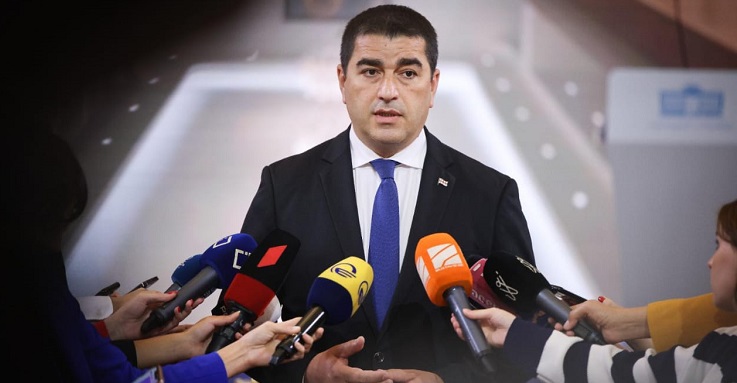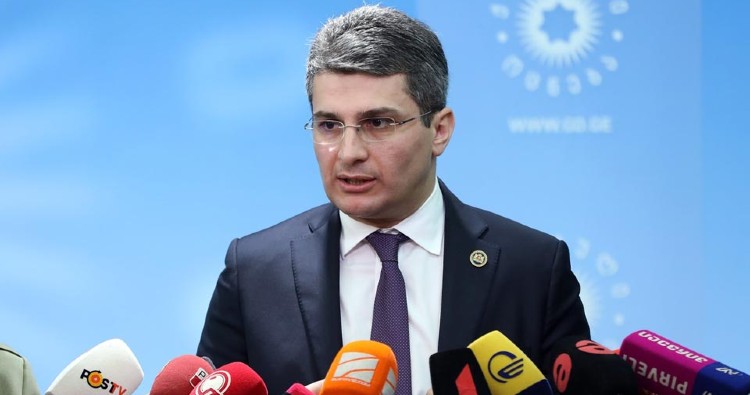Parliament Speaker: “hidden funding” of “radical” groups, parties has “increased instead of becoming more transparent”

The Georgian Parliament last year formally retracted the draft law following the decision by the ruling Georgian Dream party to withdraw the bill, after Georgian-based non-governmental organisations, the United States Department of State, European Union officials and the United Nations Office in Georgia all spoke out in criticism of the bill. Photo: Shalva Papuashvili/Facebook
Georgian Parliament Speaker Shalva Papuashvili on Wednesday told the media “hidden funding” of “radical” groups and domestic opposition parties had “increased instead of becoming more transparent”.
Papuashvili’s comments followed a decision of the parliamentary majority to resubmit the bill on the transparency of foreign influence to the Parliament, after the controversial draft law was retracted last year following public protests.
Ruling party to resubmit bill on transparency of foreign influence to Parliament
The legislative piece called for registration of non-commercial legal entities and media outlets in the country as “agents of foreign influence” if they derive more than 20 percent of their funding from abroad.
The Parliament Speaker cited the case of Droa opposition party as an example of non-transparent funding, pointing out the party's foreign funding had been “discovered by chance” after Elene Khoshtaria, the leader of the party, accidentally mentioned it in one of her social media posts.
[The organisations] [t]alking about everything being transparent is an absolute lie. This is a situation where foreign funds are already directly, blatantly, secretly financing politics in Georgia”, he added.
The Georgian Parliament last year formally retracted the draft law following the decision by the ruling Georgian Dream party to withdraw the bill, after Georgian-based non-governmental organisations, the United States Department of State, European Union officials and the United Nations Office in Georgia all spoke out in criticism of the bill.
 Tweet
Tweet  Share
Share




